
Activity Reports
Gathering scallop shells for oyster cultivation
February 5, 2012
Miyagi Prefecture is proud to cultivate the second largest volume of oysters in Japan, and also support the Hiroshima and Hokuriku areas.
The photograph below shows how holes are pierced in scallop shells, which are then strung together, to cultivate oysters.
This process is known as ‘karakkosashi’ (meaning ‘shell piercing’) by the locals.
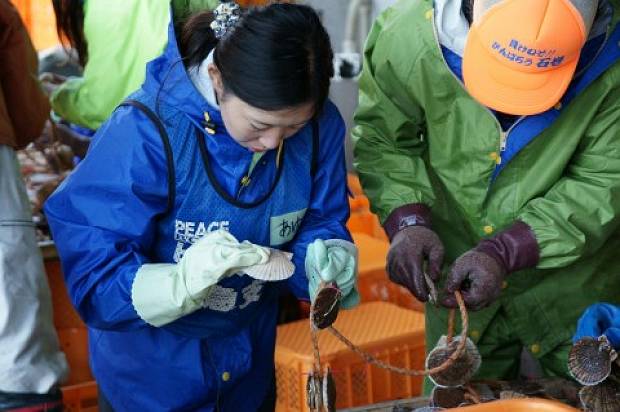
Volunteers try fish farming for their first time, giving them something new to learn.
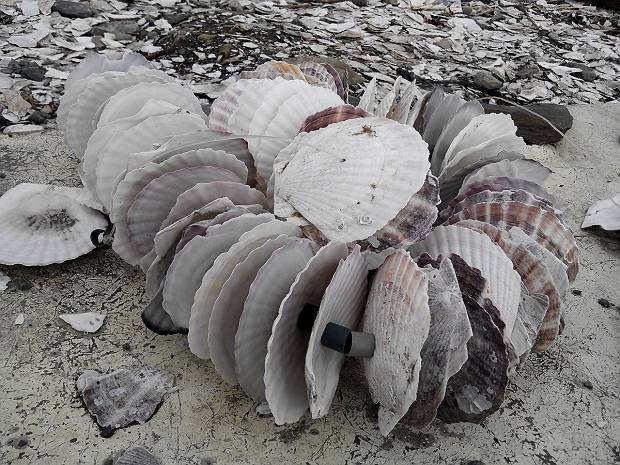
This is how ‘karakkosashi’ (shell piercing) is done.
After the earthquake, people in the area were left jobless. Locals started to think “for everyone’s future living, we want to start shipping and selling oysters again by April.”
However, it takes 45 minutes to drive from the coastal area of Ogatsu Bay where many scallop shells are piled, to the work site in the mountainous area. The lifts that were previously used for this were washed away by the tsunami, and the previously neatly stored scallop shells have also been scattered. Many of them are damaged and require human hands to sort them into category and order before transportation.
However, many of the local residents working on the scallop shell gathering and oyster cultivation are elderly people living in temporary housing or partially damaged houses. Travel by car is limited, and there are simply not enough hands to collect scallop shells and do ‘karakkosashi’ (shell piercing) at the same time in order to meet the shipping schedules in April.
Thus, Peace Boat volunteers have come here to help the fishing industry. Operation ‘Scallop Collection’ has started to collect and sort a huge volume of scallop shells!
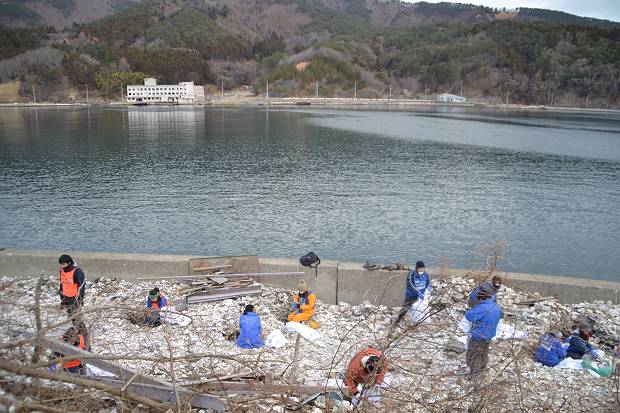
It may be difficult to see from the distance….
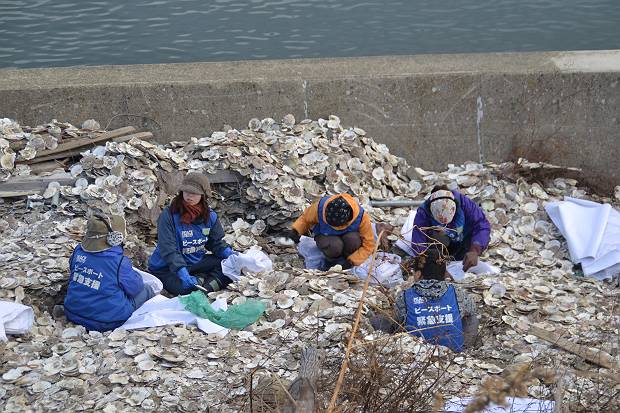
These are all scallop shells.
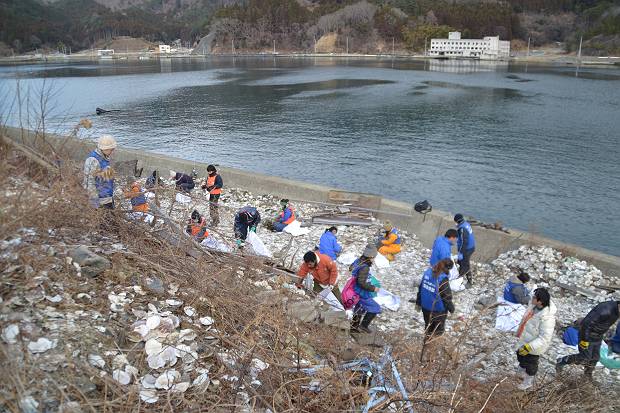
Volunteers collect, pack, and take them up.
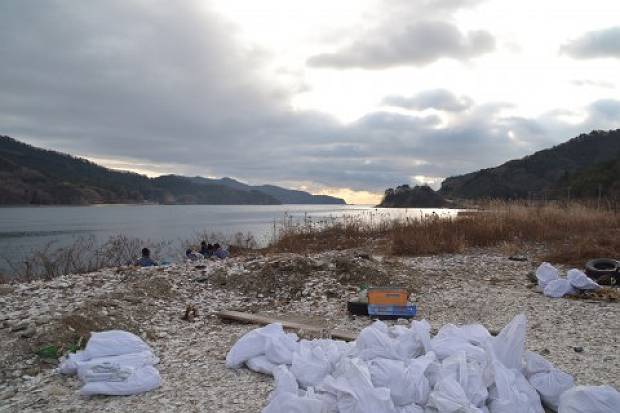
Volunteers collect, pack, and take them up.
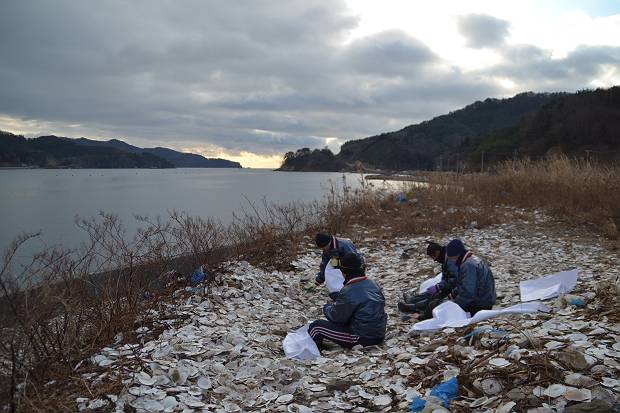
And keep on collecting…
So far, 50 2-tonne trucks of scallop shells have been collected and taken out.
This is part of supporting the recovery of the fishing industry in Japan. Well done to the volunteers for their hard work!



